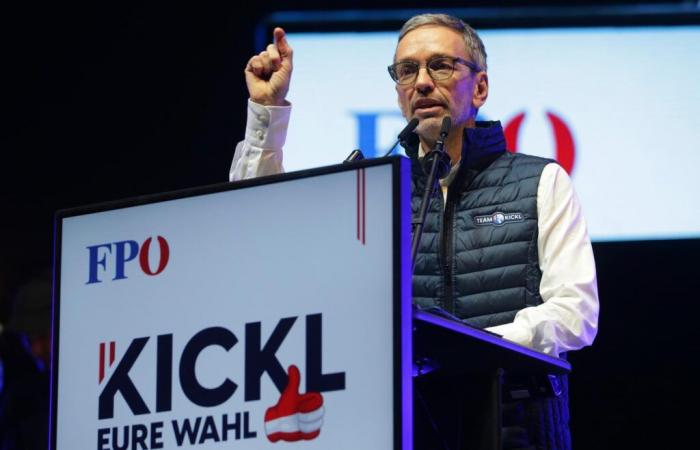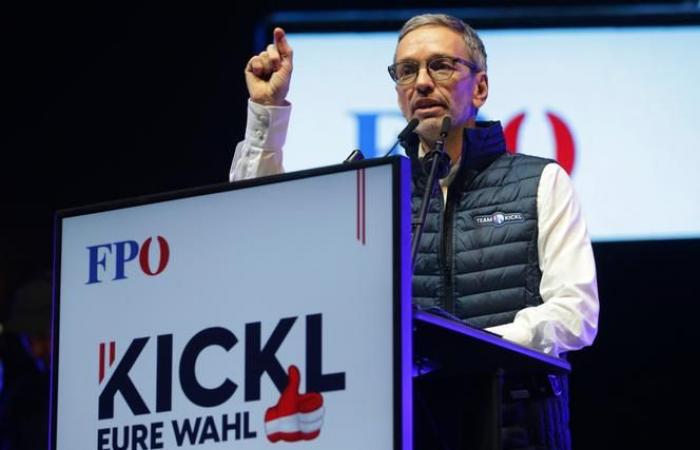At the end of three days of political crisis in Austria, the path to power suddenly became clear for the far right. Long considered a pariah by the rest of the political landscape of the small Alpine country, Herbert Kickl, the very radical leader of the Austrian Freedom Party (FPÖ) was to be received on Monday January 6 by President Alexander van der Bellen with a view to get a mandate to try to form a government.
Although he has until now always been opposed to entrusting him with power, “the situation has changed since yesterday”justified Mr. Van der Bellen, an environmentalist, during a brief speech delivered on Sunday January 5, following the resignation of the current chancellor, the conservative Karl Nehammer, which occurred the day before. Coming second behind the FPÖ in the September 2024 legislative elections, Mr. Nehammer had been trying for weeks to lead coalition negotiations with the social democrats and the liberals of the Neos party in order to avoid Mr. Kickl coming to power.
Aged 56, the leader of the FPÖ had placed himself in the lead with a historic score of almost 29% of the votes in September, but until now he had provoked the general rejection of the rest of the Austrian political groups frightened by his anti-vax convictions, pro-Russian and identitarian. After weeks of discussions, the three parties seeking to form an anti-Kickl coalition, however, came to the conclusion that they had failed on budgetary issues.
You have 76.77% of this article left to read. The rest is reserved for subscribers.







